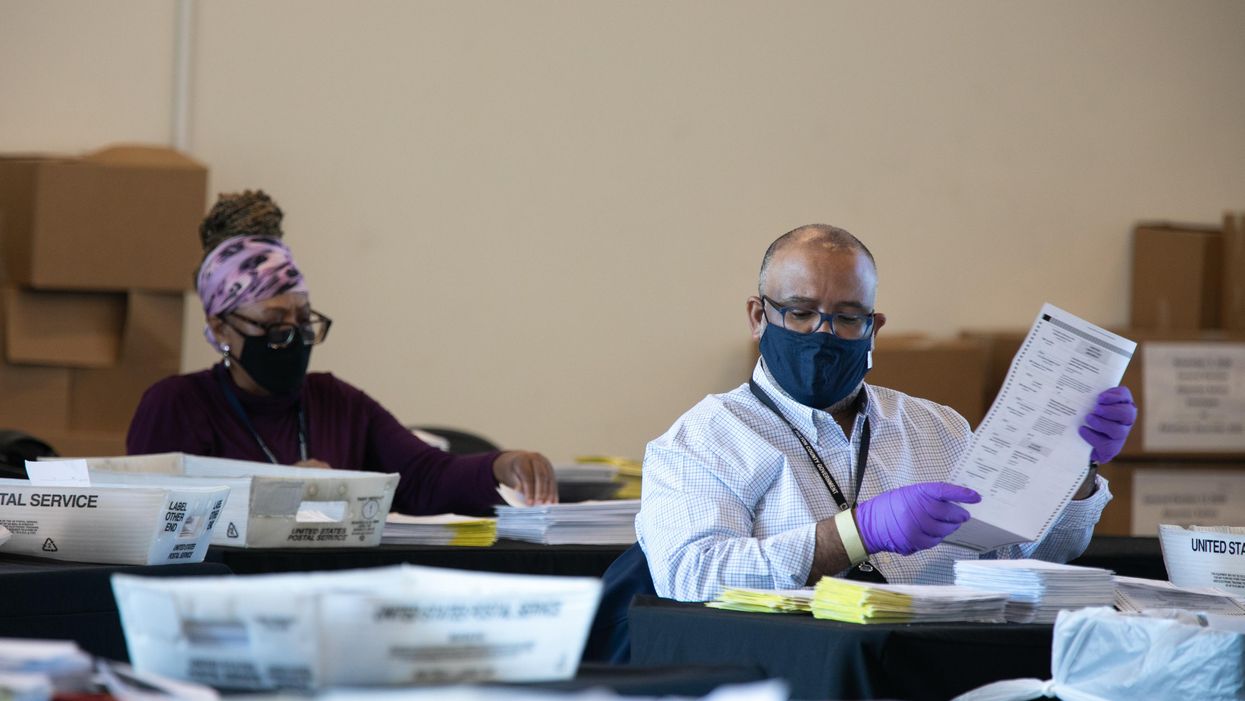Under pressure from voting rights groups, Georgia's third largest county will make it slightly easier to vote in the crucial Senate runoffs.
Cobb County planned to open only five instead of the usual 11 places for early in-person voting, which civil rights organizations complained would suppress the Black and Latino vote in the Atlanta suburbs. On Wednesday the county conceded the problem by moving one polling location and adding two more, but only for the final week of early voting.
But that partial victory may soon be overwhelmed by a bigger challenge to the cause of civic participation in the nation's newest big purple state. Top Republicans say they'll soon launch a bid in the General Assembly to reverse many of the policies that made voting easier this year.
Making the ballot box accessible to all who are eligible has long been a central tenet of the democracy reform movement, but it is of particular short-term importance in Georgia because who votes in the twin Jan. 5 runoffs will determine which party controls the Senate next year — which will decide whether any aspect of the good-governance agenda stands a chance in Congress.
Six voting and civil rights groups sent a letter Monday to Cobb County officials asking for all 11 voting centers that were used in the general election to also be open for the runoffs.
The new plan doesn't go as far as the groups hoped. Instead, one voting center was relocated to the southern part of the county where there is a higher Black population. And two more locations, one in the north and another in the south, will be open the final four days before early voting ends on New Year's Eve.
The county elections chief, Janine Eveler, said staffing shortages because of the holidays and the coronavirus surge made it impossible to do more than that. "We have simply run out of people," she said. "Many workers told us they spent three weeks working 14- or 15-hour days and they will not do that again."
Meanwhile, the Republican majority caucus in the state Senate promised Tuesday to make a tightening of election laws one of their top priorities in the new year.
They said they were responding to "the calls of millions of Georgians who have raised deep and heartfelt concerns that state law has been violated and our election process abused" in the general election.
Many in the GOP base are furious and suspicious about an election where Joe Biden became the first Democratic presidential nominee to carry the state in seven elections and neither of the GOP senators, Kelly Loeffler and David Perdue, was able to muster the 50 percent the state requires for re-election.
The GOP lawmakers said they would push legislation to eliminate no-excuse absentee voting, bar the use of drop boxes to return mail ballots and add a photo ID requirement for those seeking to cast an absentee ballot.
These proposed changes are in direct response to the Nov. 3 election in which many more voters than ever before — in Georgia and across the country — decided to cast their ballots by mail due to the Covid-19 pandemic. President Trump and many other Republicans have repeatedly and falsely asserted that widespread mail voting leads to fraud. There has been no evidence before or after this year's election to back up that claim.
The Republican legislators are also requesting an investigation and additional audits into the Nov. 3 election. Three counts of presidential ballots so far have produced the same result: Biden won by about 12,000 votes.




















Trump & Hegseth gave Mark Kelly a huge 2028 gift